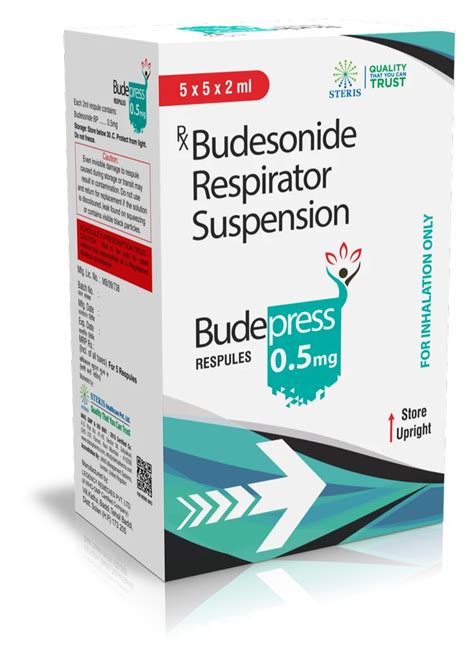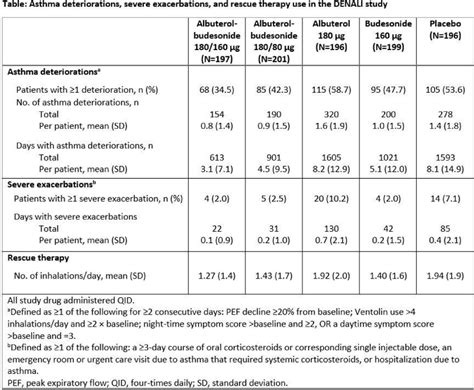Intro
Budesonide treats respiratory issues like asthma and COPD, reducing inflammation with anti-inflammatory properties, relieving symptoms of bronchospasm and allergic rhinitis.
Budesonide is a corticosteroid medication that has been widely used for various health conditions. It is essential to understand the importance of budesonide and its applications to appreciate its benefits and potential side effects. The medication has been a crucial component in the treatment of several diseases, and its effectiveness has made it a popular choice among healthcare professionals. In this article, we will delve into the world of budesonide, exploring its uses, benefits, and potential drawbacks.
The significance of budesonide lies in its ability to reduce inflammation and suppress the immune system. This makes it an ideal treatment option for conditions characterized by excessive inflammation or immune system overactivity. Budesonide has been used to treat a range of diseases, from respiratory disorders to gastrointestinal conditions. Its versatility and efficacy have made it a staple in modern medicine. As we explore the uses of budesonide, it becomes clear that this medication has revolutionized the treatment of various health conditions.
Budesonide has been extensively used in the treatment of respiratory diseases, such as asthma and chronic obstructive pulmonary disease (COPD). Its anti-inflammatory properties help reduce airway inflammation, making it easier for patients to breathe. The medication has also been used to treat allergic rhinitis, a condition characterized by inflammation of the nasal passages. By reducing inflammation and suppressing the immune system, budesonide provides relief from symptoms such as congestion, sneezing, and runny nose. As we continue to explore the uses of budesonide, it becomes apparent that this medication has a significant impact on improving the quality of life for patients with respiratory diseases.
Budesonide for Respiratory Diseases

Benefits of Budesonide for Respiratory Diseases
The benefits of using budesonide for respiratory diseases are numerous. The medication has been shown to improve lung function, reduce symptoms, and enhance quality of life for patients. Budesonide has also been found to reduce the risk of exacerbations, hospitalizations, and mortality in patients with respiratory diseases. Some of the key benefits of budesonide for respiratory diseases include: * Reduced risk of exacerbations * Reduced risk of hospitalizations * Reduced risk of mortality * Improved lung function * Enhanced quality of lifeBudesonide for Gastrointestinal Diseases

Benefits of Budesonide for Gastrointestinal Diseases
The benefits of using budesonide for gastrointestinal diseases are significant. The medication has been shown to improve symptoms, reduce inflammation, and enhance quality of life for patients. Budesonide has also been found to reduce the risk of complications such as bowel obstruction and colon cancer. Some of the key benefits of budesonide for gastrointestinal diseases include: * Reduced risk of complications * Improved symptoms * Reduced inflammation in the digestive tract * Enhanced quality of lifeBudesonide for Allergic Rhinitis

Benefits of Budesonide for Allergic Rhinitis
The benefits of using budesonide for allergic rhinitis are numerous. The medication has been shown to improve symptoms, reduce inflammation, and enhance quality of life for patients. Budesonide has also been found to reduce the risk of complications such as sinusitis and otitis media. Some of the key benefits of budesonide for allergic rhinitis include: * Reduced risk of complications * Improved symptoms * Reduced inflammation in the nasal passages * Enhanced quality of lifeSide Effects of Budesonide

Managing Side Effects of Budesonide
To manage the side effects of budesonide, it is essential to follow the prescribed dosage and administration instructions. Patients should also inform their healthcare provider about any side effects they experience. In some cases, the healthcare provider may adjust the dosage or recommend alternative treatments to minimize side effects. Some tips for managing side effects of budesonide include: * Taking the medication as prescribed * Informing the healthcare provider about any side effects * Adjusting the dosage or administration schedule * Using alternative treatments to minimize side effectsConclusion and Future Directions

We invite you to share your thoughts and experiences with budesonide in the comments section below. Have you used budesonide to treat a health condition? What were your experiences with the medication? Do you have any questions or concerns about budesonide? Share your story and help others understand the benefits and potential drawbacks of this versatile medication.
What is budesonide used for?
+Budesonide is used to treat various health conditions, including respiratory diseases, gastrointestinal diseases, and allergic rhinitis.
What are the benefits of using budesonide for respiratory diseases?
+The benefits of using budesonide for respiratory diseases include reduced airway inflammation, improved lung function, and enhanced quality of life.
What are the potential side effects of budesonide?
+The potential side effects of budesonide include headache, nausea and vomiting, diarrhea, abdominal pain, fatigue, insomnia, and mood changes.
How can I manage the side effects of budesonide?
+To manage the side effects of budesonide, it is essential to follow the prescribed dosage and administration instructions, inform the healthcare provider about any side effects, and adjust the dosage or administration schedule as needed.
What is the future direction of budesonide research?
+The future direction of budesonide research includes uncovering the benefits and potential drawbacks of the medication, optimizing treatment outcomes, and improving quality of life for patients with various health conditions.
